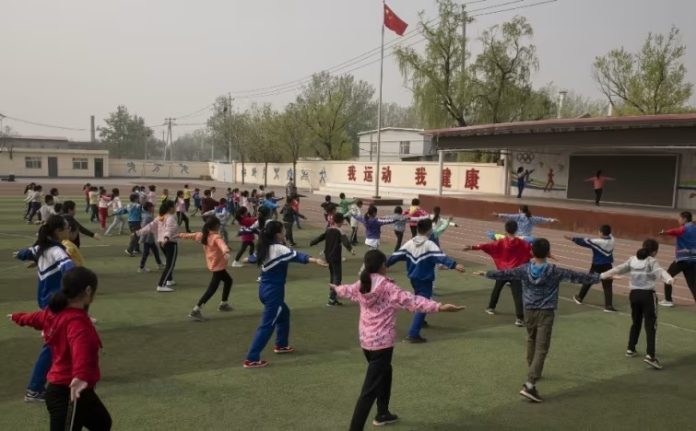SINGAPORE: China is taking fresh aim at the growing problem of student obesity, amid recent data suggesting the issue would significantly weigh down the world’s second-largest economy if left unchecked.
New national guidelines for primary and secondary school children announced on Monday (Jul 22) place particular focus on prevention, laying out a three-level strategy to combat unhealthy weight gain.
They were jointly released by the education ministry, the National Health Commission and the General Administration of Sport of China, reflecting the heightened attention on the issue at the government level.
“Obesity and being overweight has become one of the major public health issues affecting the health of primary and secondary school students,” the document – released by the National Disease Control and Prevention Administration – stated, adding that it “requires urgent attention from the whole of society”.
Families and schools are encouraged to promote healthy eating habits in children, such as providing more fruits and vegetables, dairy products, as well as whole grain and beans. They are also encouraged to use less salt, oil and sugar in cooking.
On top of promoting healthy eating habits, schools are encouraged to have one period of physical education class a day, and ensure that students have sufficient activity time between classes.
Similarly at home, parents should cultivate their children’s exercise habits and reduce sedentary behaviour such as sitting for long periods.
The guidelines also encourage “creating a good dining atmosphere and cultivating good dining habits in children” at home, such as avoiding watching TV or playing with electronic devices during meals.
MONITORING STUDENTS’ HEALTH
The guidelines rolled out for schools also include organising nutrition and health education courses to improve students’ understanding of nutrition and health, as well as training for catering employees in school canteens to improve meal preparation and healthy cooking skills.
Schools are also urged to hire qualified full-time and part-time nutritional professionals. They should also avoid providing food high in salt, sugar and fat in canteens and vending machines.
Chinese authorities recommend that organisations should guide schools to monitor obesity and unhealthy weight gain in students through health examinations.
Schools can help parents monitor their child’s changes in weight by establishing health records and providing feedback on their physical examination results, they added.
“Early warnings” would be given to students who are overweight or obese, based on their health assessment results.
Parents are advised to monitor their child’s weight and regularly measure their blood pressure and blood sugar levels – among others – so that they can “receive guidance and services from medical institutions”, the document stated.
Findings from a study showed that in 2020, an estimated 37.9 per cent of children and adolescents in China were overweight or obese, a fourfold increase from the 8.8 per cent logged in 2000, Chinese news website Caixin reported in January.
Researchers estimated that by 2030, the figure will reach more than 60 per cent if the trend continues. The findings also showed China would face significant health and economic impacts if the issue was left unchecked, Caixin reported.
The study estimated that without intervention, China would face a lifetime economic impact of 218 trillion yuan (US$30 trillion) due its current levels of child and adolescent obesity from 2025 to 2092.
The guidelines are the latest in a series of recent moves China has been making to battle expanding waistlines – not just among children, but the general population.
More than a third of China’s 1.4 billion population are overweight and over 14.1 percent are obese, according to a 2023 report by Chinese news site Sixth Tone that cited a study published in 2020. The study surveyed about 15.8 million adults across 243 cities in the country.
Authorities launched a three-year battle against the bulge in June, stressing the “urgent need” for intervention and calling for ramped up efforts in raising public awareness and taking action.









































